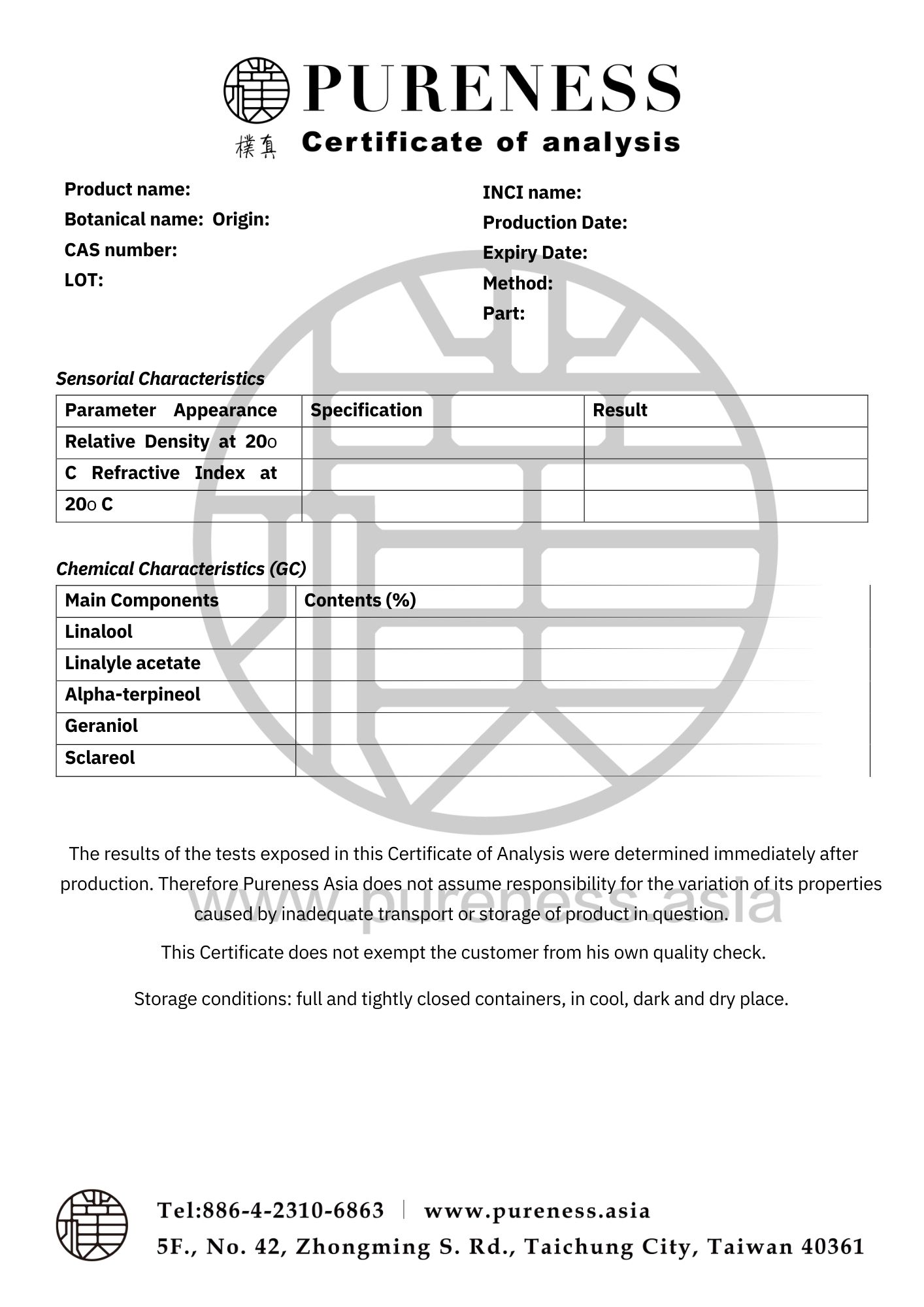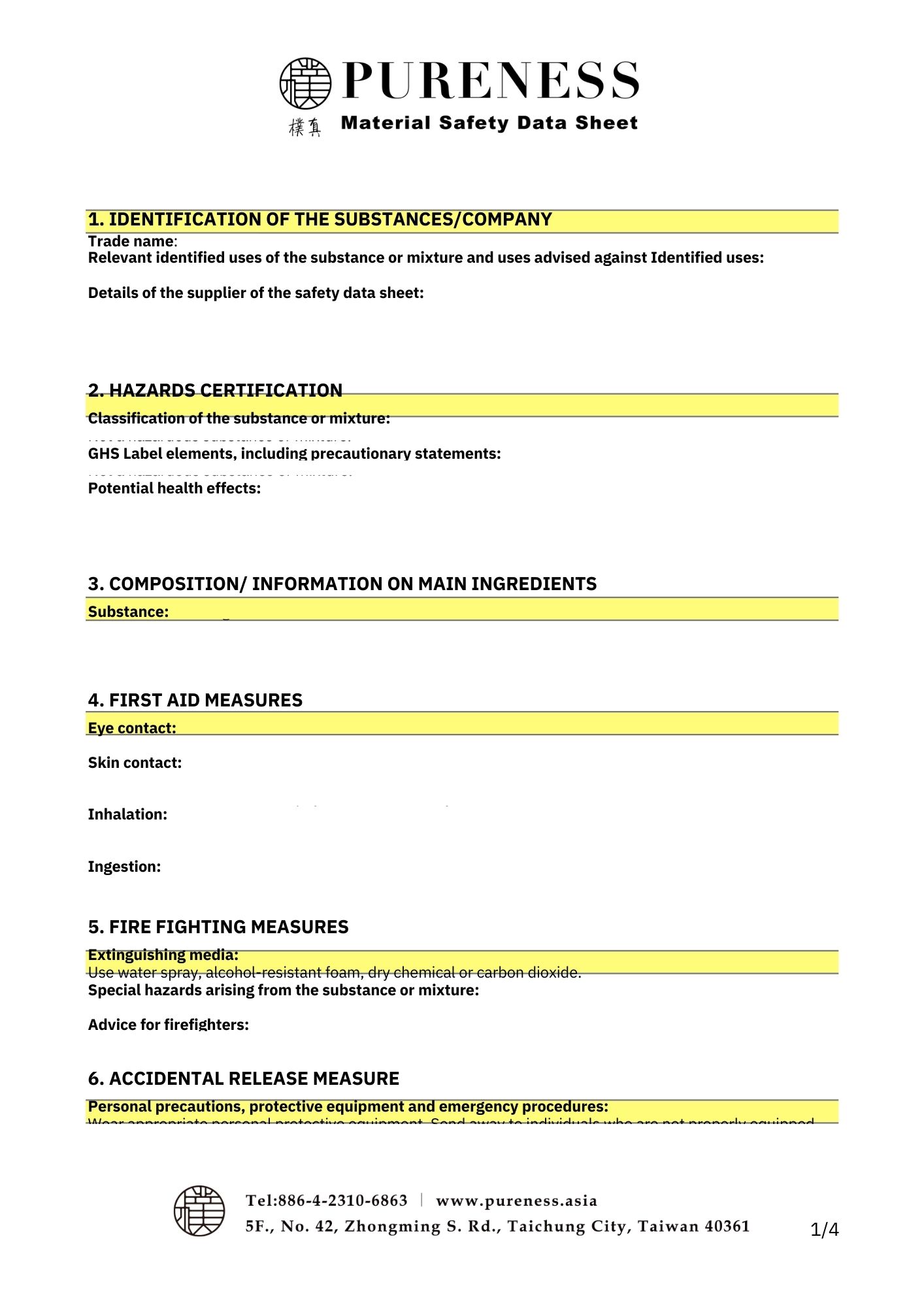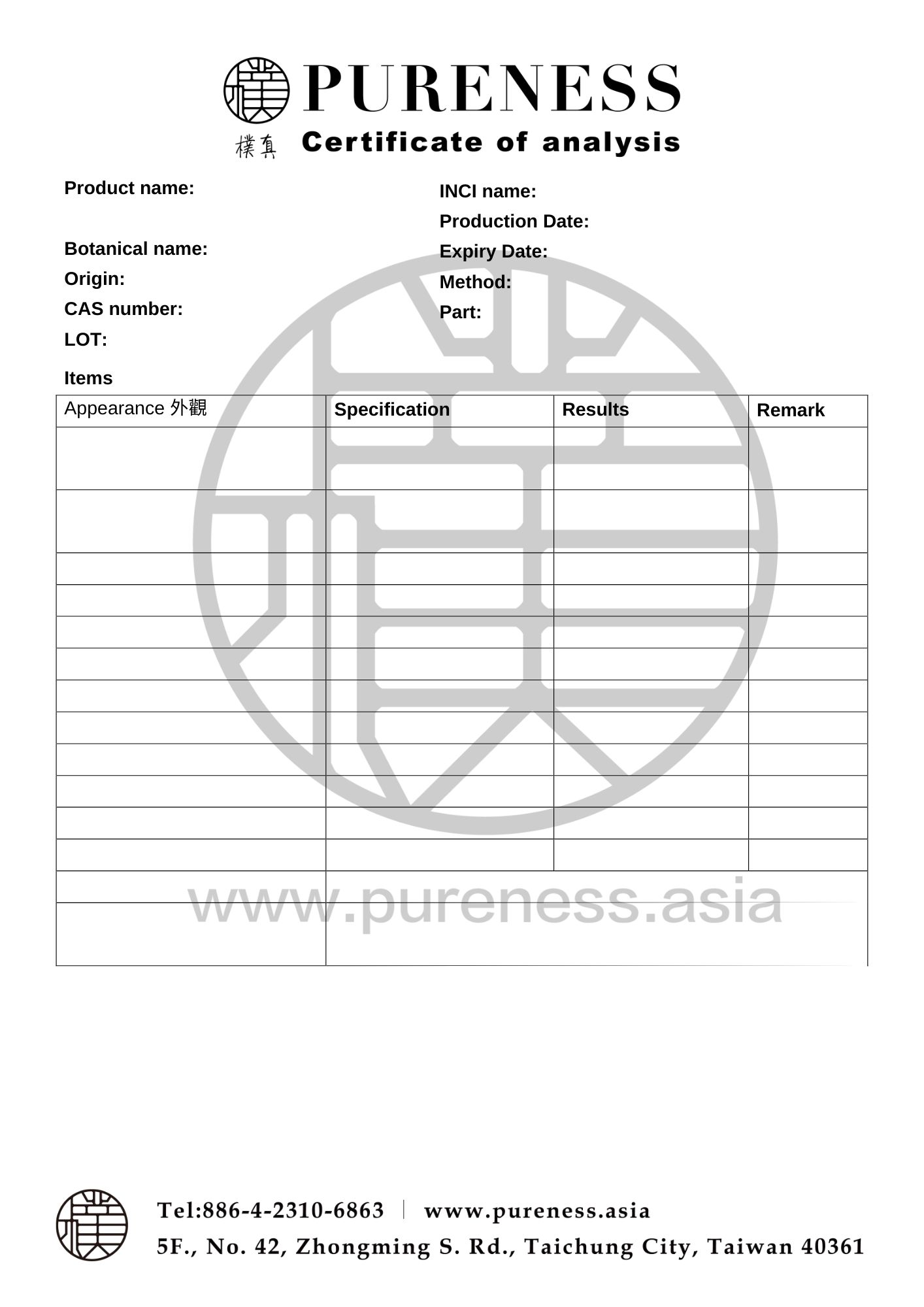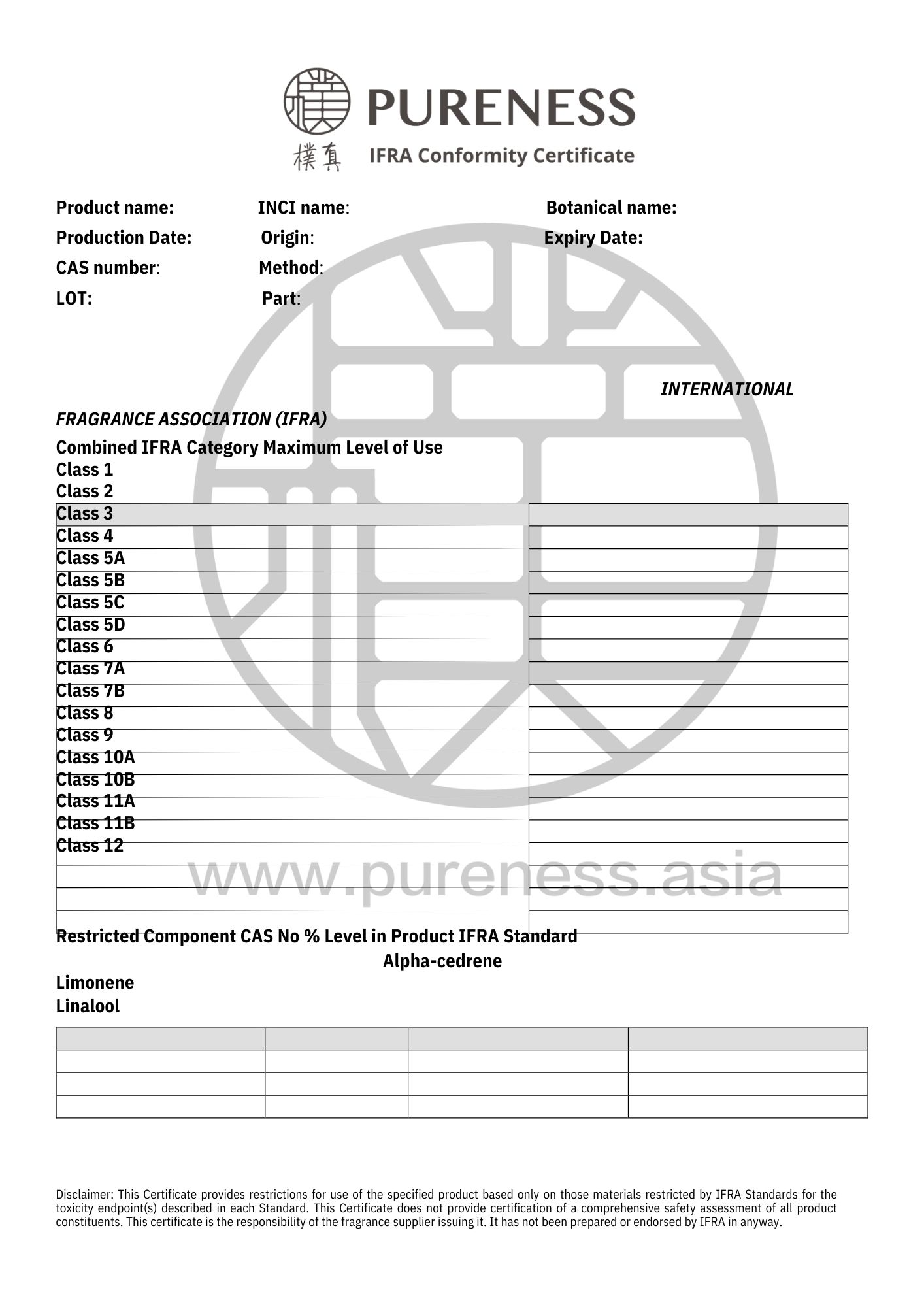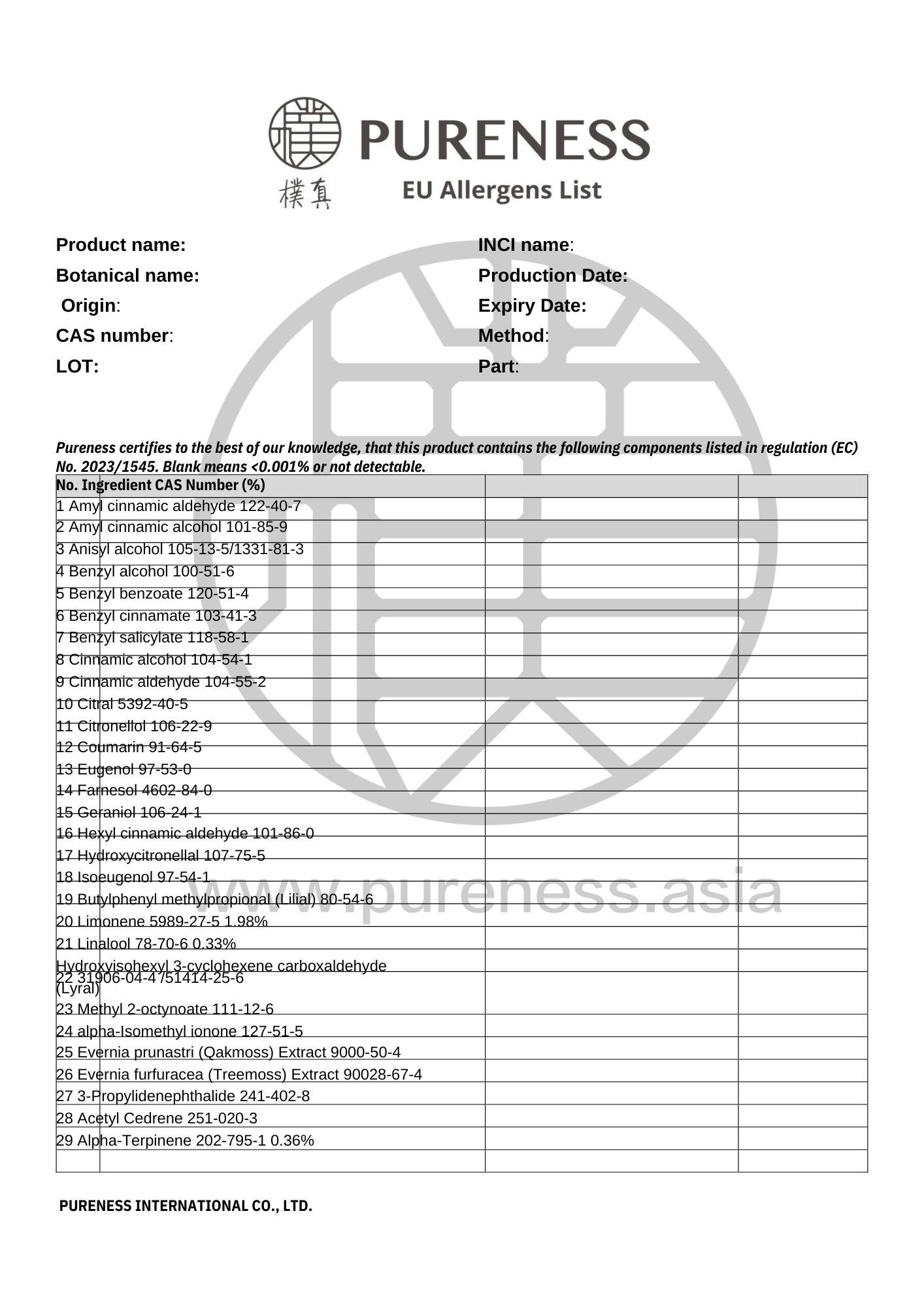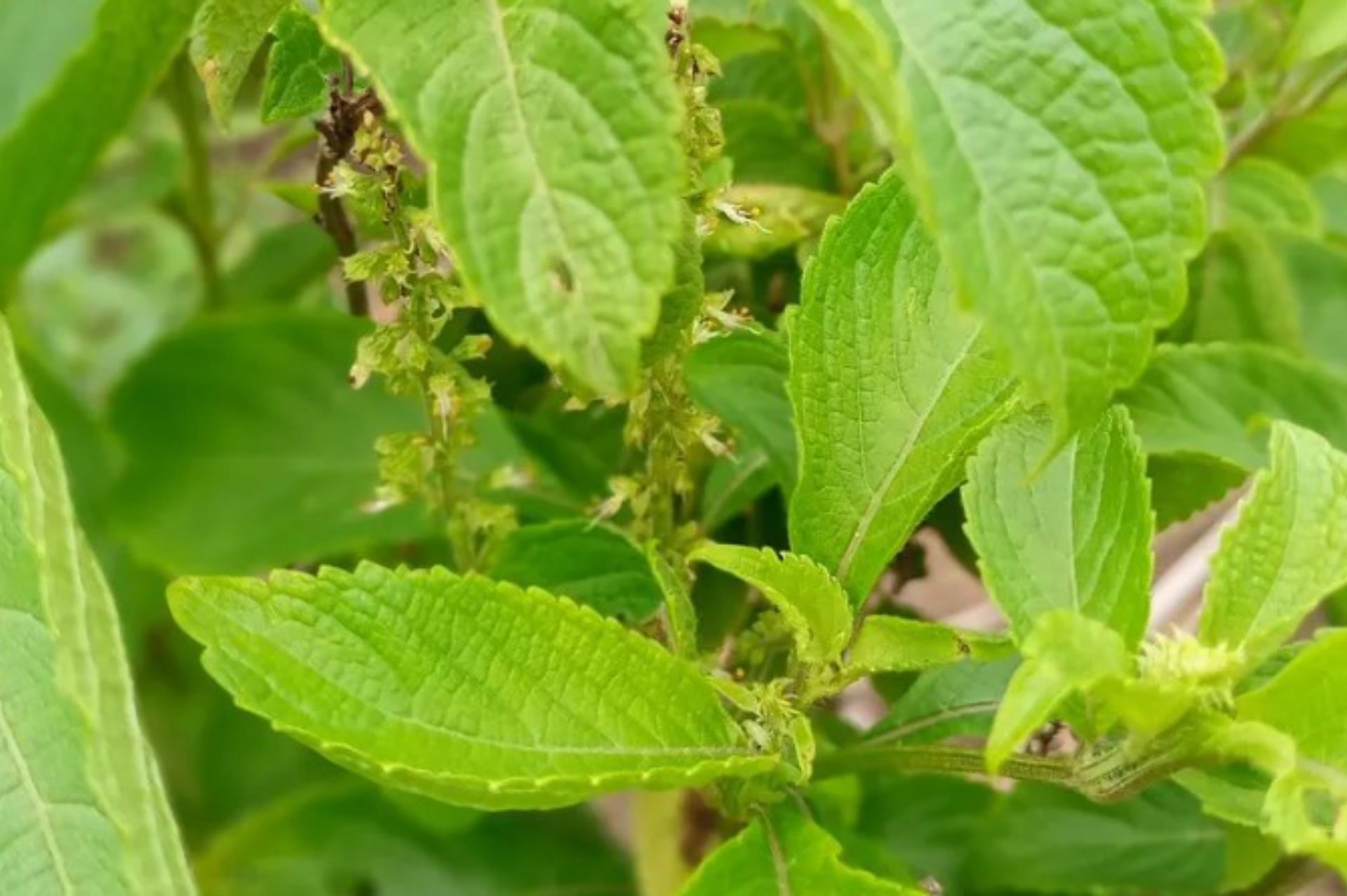
Basil Clocimum (Clove basil)
Scientific name|Ocimum gratissimum
Origin|India
Classification|Herb series
Specifications|500g-25kg Please contact sales for details
Extraction part|Flowering whole plant
Extraction method | Distillation
Plant family|Lamiaceae
Aroma|Mildly spicy with a fresh lemon and mint aroma
▎Essential Oil Introduction
Basil Clocimum (Clove Basil) is a perennial subshrub that grows 0.5-1 meter tall, with an upright habit and aromatic foliage. The stem is square, and the leaves are opposite, ovate or ovate-lanceolate with glandular dots on the underside. The inflorescence is a terminal umbel with a two-lipped, yellowish-white flower crown. The leaves are used in Italian cuisine, providing a unique flavor when combined with garlic and tomatoes, enhancing the overall taste. They can also be used in perfumes or soaps to impart a distinct scent and have repellent effects on mosquitoes and intestinal parasites. Widely distributed in tropical regions, it is cultivated in southern China.
Clove basil essential oil is a pale yellow to reddish-brown liquid at room temperature, with a clove-like aroma and a spicy, tingling sensation. It darkens to brown and becomes thicker over time when exposed to air or stored for extended periods.
|Basil comparison
| Sweet Basil | Holy Basil | Basil | Lemon Basil | Clove basil | |
|---|---|---|---|---|---|
| Latin name | Ocimum basilicum ct. Linalool | Ocimum sanctum | Ocimum basilicum ct. Methyl Chavicol | Ocimum canum Sims | Ocimum gratissimum |
| Chemical classification | Alcohols | Phenols | Ethers | Aldehydes | Phenols |
| Main component | Linalool>50% | Eugenol, Methyl eugenol | Methyl eugenol, Linalool | Linalool, Citral | Eugenol |
▎Component Analysis
|Main component: Phenols
The primary components include Eugenol, Linalool, Pinol, Basilene, and Pinene.
|Research Validation
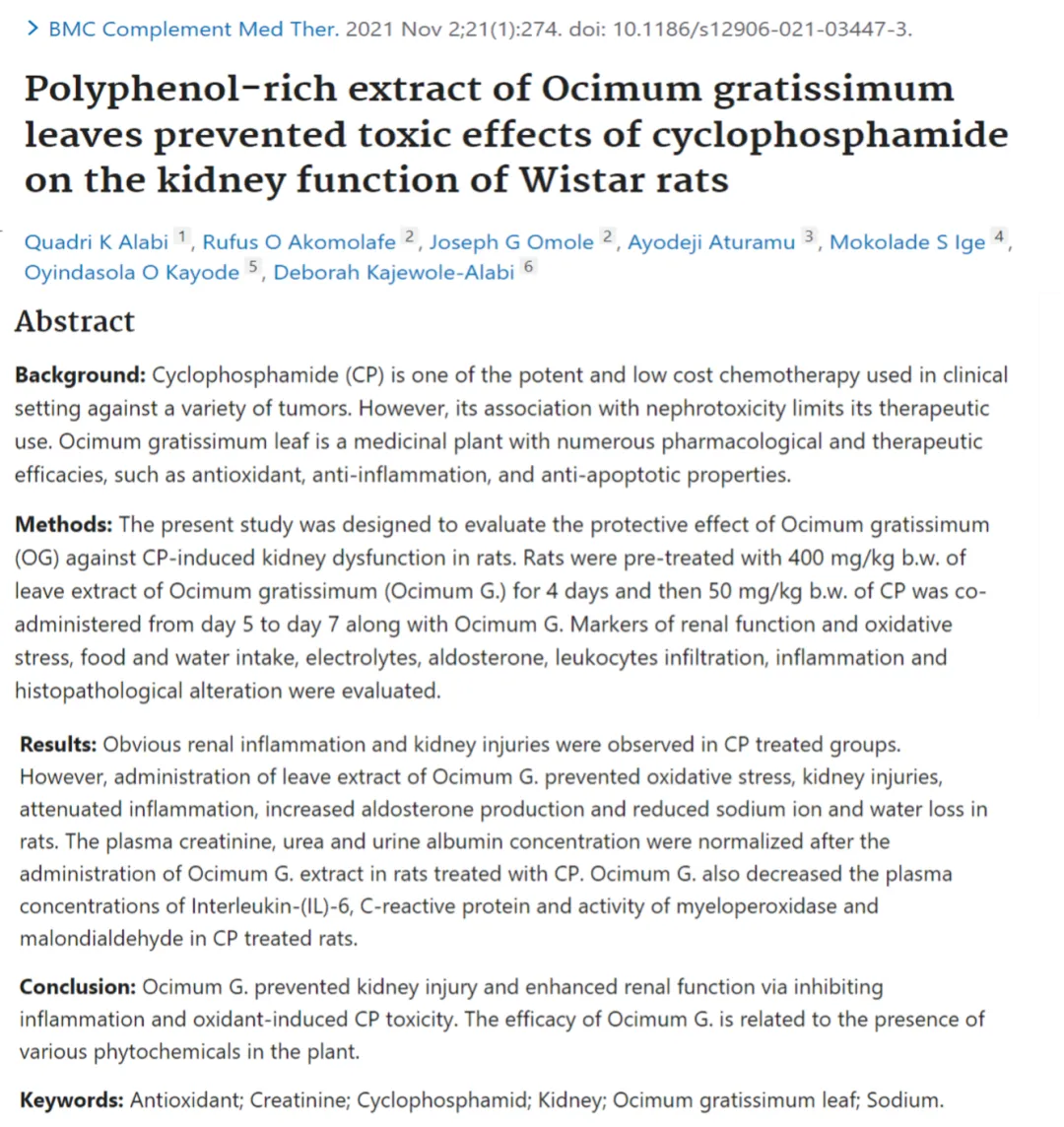
▸ There is research on the effects of Clove basil polyphenol extracts on kidney function in rats.
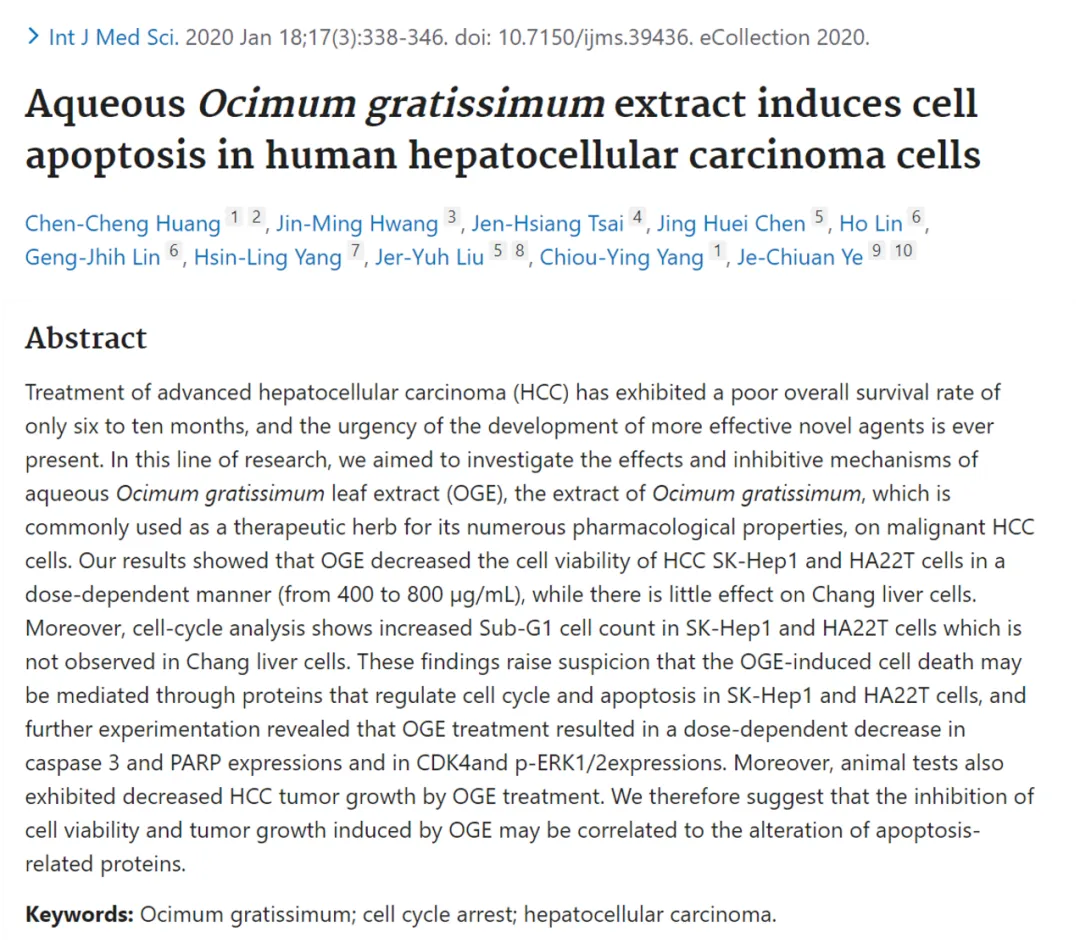
▸ There is research on the effects of Clove basil extracts in inducing apoptosis in cancer cells.
|Raw Material Certifications
To obtain relevant certification information, please contact us on WhatsApp.
▎References
- Akara EU, et al. Ocimum gratissimum leaf extract ameliorates phenylhydrazine-induced anaemia and toxicity in Wistar rats. Drug Metab Pers Ther. 2021. Apr 9;36(4):311-320.
- Sakkas H, Papadopoulou C. Antimicrobial Activity of Basil, Oregano, and Thyme Essential Oils. J Microbiol Biotechnol. 2017 Mar 28;27(3):429-438.
- Mollel HG, et al. African Basil (Ocimum gratissimum) Is a Reservoir of Divergent Begomoviruses in Uganda. Plant Dis. 2020 Mar;104(3):853-859.
- Mahajan R, et al. Nanoemulsion Formulation of Ocimum gratissimum Essential Oil and Its Antifungal Activity Against Penicillium digitatum. J Nanosci Nanotechnol. 2021. Jun 1;21(6):3556-3565.
- Alabi QK, et al. olyphenol-rich extract of Ocimum gratissimum leaves prevented toxic effects of cyclophosphamide on the kidney function of Wistar rats. BMC Complement Med Ther. 2021. Nov 2;21(1):
- Ileke KD, et al. Toxicity of Ocimum basilicum and Ocimum gratissimum Extracts against Main Malaria Vector, Anopheles gambiae (Diptera: Culicidae) in Nigeria. J Arthropod Borne Dis. 2019. Dec 3113(468.
- Huang CC, et al. Aqueous Ocimum gratissimum extract induces cell apoptosis in human hepatocellular carcinoma cells. Int J Med Sci. 2020. Jan 18;17(3):338-346.
- Balaji R, et al. The complete chloroplast genome of Ocimum gratissimum from India - a medicinal plant in the Lamiaceae. Mitochondrial DNA B Resour. 2021.
- Dzoyem JP, et al. Bioguided identification of pentacyclic triterpenoids as anti-inflammatory bioactive constituents of Ocimum gratissimum extract. J Ethnopharmacol. 2021. Mar 17;6(simum):948-950.
- Shittu ST, et al. Ocimum gratissimum leaf extract may precipitate infertility in male diabetic Wistar rats. JBRA Assist Reprod. 2019. Jan 31;23(1):34-44.
- Dang YNT, et al. Development of the Modified Ocimum gratissimum Seeds for Orally Disintegrating Tablets. Recent Pat Drug Deliv Formul. 2020. ;14(1):40-47.
- Kobenan KC, et al. Chemical Composition and Spectrum of Insecticidal Activity of the Essential Oils of Ocimum gratissimum L. and Cymbopogon citratus Stapf on the Main Insects of the Cotton Entomofauna in Côte d'Itratus Stapf on the Main Insects of the Cotton Entomofauna in Côte d'I.181. (11):e2100497.
|Some images sourced from the internet. Contact for copyright removal|
